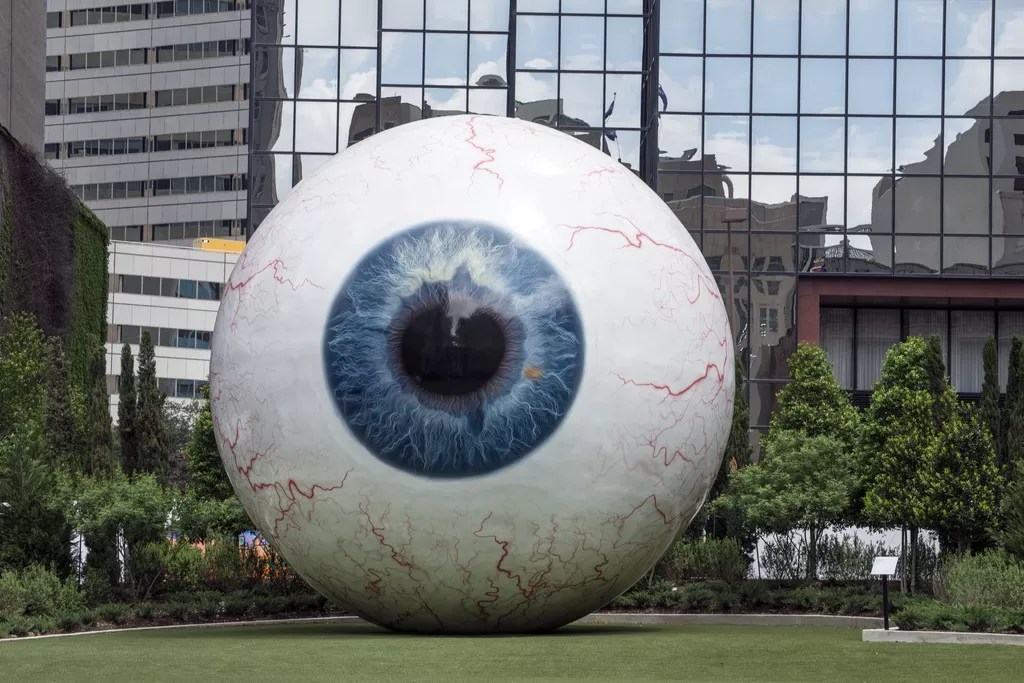
Library of Congress

Audio By Carbonatix
In March, billionaire tech tycoon Bill Gates stopped by The Tonight Show Starring Jimmy Fallon and shared a poor prognosis for the American workforce as artificial intelligence begins to threaten specialized, high-paying professions like medicine. Gates estimates that in 10 years, the world won’t need doctors anymore, as AI will have replaced even the most specialized industries.
“[AI advancement] is very profound and even a little bit scary – because it’s happening very quickly, and there is no upper bound,” Gates said in a 2023 interview during a book tour stop at Harvard University.
When AI became easily accessible, it posed the greatest and most obvious threat to the arts and communications industries. As technology advances, it’s evolving to replace medical professionals across every field, against doctors’ recommendations.
“AI did not take the Hippocratic oath,” Dr. Jamie Yee, a practicing optometrist in Frisco, said to the Observer. “That’s not a human. It’s not ethical. It’s a machine that’s designed to tell people, ‘Hey, this is what [your prescription] is, and guess what? We can sell this to you.'”
Yee says that as AI progresses in an unregulated market, primary care physicians will likely be replaced first. Still, specialists will eventually be replaced or at least significantly reduced in number.
At Yee’s practice in Frisco, she’s seeing more and more patients counseling ChatGPT for a second opinion, preferring the breadth of the entire World Wide Web consolidated into a digestible paragraph over Yee’s four years of optometry school. However, the doctor says that using AI for a diagnosis is an even worse version of plugging symptoms into WebMD.
“The biggest issue is that people can’t ask the right questions,” said Yee. “They can’t put the right things into ChatGPT.”
Yee said the odds of patients having whatever rare disease ChatGPT might recommend are “outrageously low.”
The false second, or sometimes first, opinion of ChatGPT isn’t the only concern with AI and the medical industry, though. While AI technology has proven beneficial as a highly dextrous assistive tool in surgical procedures and shows a keen analytical proficiency in radiology and pathology, Yee says there are some things it just can’t do, for now.
“AI did not take the Hippocratic oath,” – Dr. Jamie Yee, optometrist
According to her, in optometry, most AI screenings are limited and cannot perform truly comprehensive examinations that assess the entire eye structure rather than just the retina.
“I’ve seen a lot of retinal AI exams, [that] are not fair because it’s only telling you half of your eye,” Yee said. “You could have a serious disease of your cornea and not know if you’re just doing those retinal exams.”
Yee says some optometrists have already been replaced, to the chagrin of unknowing patients who have unwittingly scheduled an appointment at an office without a doctor.
“They were charged the same copay as though an eye doctor were seeing them. They say, ‘No, I don’t like this. This is weird. I need to see a person. That was really wrong. I really didn’t like it.'”
Aside from the continued workforce reduction, increasing distrust in medical professionals and poorly intentioned parties capitalizing on AI to sell products, there’s another concerning issue with allowing AI to overtake the medical industry.
According to a think piece from Dr. Ted James, a medical director and professor of surgery at Beth Israel Deaconess Medical Center, a teaching hospital within Harvard Medical School, AI can perpetuate biases within the medical industry.
“When [historical] data carry biases – such as underrepresentation of certain groups or gender biases in treatment – AI systems inevitably absorb and perpetuate these biases. Algorithms may predict lower health risks for populations that have historically had less access to health care services, not because they are healthier, but because there is less documented health care usage. This demonstrates how AI can entrench existing disparities if not carefully managed,” James wrote.
Thousands of bills to regulate AI have been filed at the state and federal levels, none of which have made significant progress. President Donald Trump’s signature piece of legislation, filed by North Texas Rep. Jodie Arrington, the One Big Beautiful Bill Act, just narrowly passed the House of Representatives by a single vote. The bill includes a moratorium prohibiting states from regulating AI over the next 10 years. The provision was challenged, but last week, the Senate parliamentarian upheld it, potentially keeping the regulation of AI outside of states’ rights if the Senate approves it.
But Yee is still hoping for congressional action to protect her industry.
“The optometry world is always fighting back … [and] think there should be legislative actions for deceiving the general public,” she said.